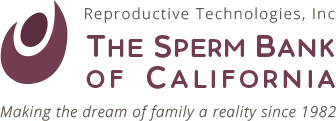It is part of TSBC’s mission to find ways to provide equitable services, including access to reproductive options for our increasingly diverse community. For this reason, we have created our Equity Policy which includes reserving vials of certain donors to better assist TSBC recipients in their family creation efforts. Vial purchase restrictions occur for a variety of reasons and on a case-by-case basis. This helps give recipients a greater chance to build their family with the donor of their choice, and helps recipients with financial limitations be able to purchase single or smaller numbers of vials at one time.
Equity Policy
How to Reach Us
Phone Hours:
Monday thru Friday 9:30 AM to 4:30 PM PST
In person visits are by appointment only.
We are closed most major holidays.
TSBC’s Equity Policy
It is part of TSBC’s mission to find ways to provide equitable services, including access to reproductive options for our increasingly diverse community. For this reason, we have created our Equity Policy which includes reserving vials of certain donors to better assist TSBC recipients in their family creation efforts. Vial purchase restrictions may occur for a variety of reasons and on a case by case basis.
2115 Milvia St. Suite 201
Berkeley CA 94704
[email protected]
ph. (510) 841-1858
fax (510) 841-0332
TSBC is a 501(c)(3) non-profit corporation. Financial donations to TSBC are tax-deductible as allowed by US law. EIN: 94-3059240
